Interrogating Illiberal Peace in Eurasia
Global Dialogues: Developing Non-Eurocentric IR and IPE
Series Editors: John M. Hobson, Professor of Politics and International Relations, University of Sheffield
L. H. M. Ling, Professor, Milano School of International Affairs, Management, and Urban Policy, The New School
This series adopts a dialogical perspective on global politics, which focuses on the interactions and reciprocities between West and non-West, across Global North and Global South. Not only do these shape and re-shape each other but they have also shaped, made and remade our international system/global economy for the past 500 years. Acknowledging that these reciprocities may be asymmetrical due to disparities in power and resources, this series also seeks to register how Eastern agency, in tandem with counterparts in the West, has made world politics and the world political economy into what it is. While this series certainly welcomes purely theoretically based books, its primary focus centres on empirical rethinking about the development of the world political system and the global economy along non-Eurocentric lines.
Titles in the Series
Islam and International Relations: Exploring Community and the Limits of Universalism
by Faiz Sheikh
Historical Sociology and World History: Uneven and Combined Development over the Longue Dure
edited by Alexander Anievas and Kamran Matin
Re-Writing International Relations: History and Theory beyond Eurocentrism in Turkey
by Zeynep Gulsah Capan
Interrogating Illiberal Peace in Eurasia: Critical Perspectives on Peace and Conflict
edited by Catherine Owen, Shairbek Juraev, David Lewis, Nick Megoran and John Heathershaw
Interrogating Illiberal Peace in Eurasia
Critical Perspectives on Peace and Conflict
Edited by Catherine Owen, Shairbek Juraev, David Lewis, Nick Megoran and John Heathershaw
London New York
Published by Rowman & Littlefield International Ltd
Unit A, Whitacre Mews, 2634 Stannary Street, London SE11 4AB
www.rowmaninternational.com
Rowman & Littlefield International Ltd. is an affiliate of Rowman & Littlefield
4501 Forbes Boulevard, Suite 200, Lanham, Maryland 20706, USA
With additional offices in Boulder, New York, Toronto (Canada), and Plymouth (UK)
www.rowman.com
Copyright 2018 Catherine Owen, Shairbek Juraev, David Lewis, Nick Megoran and John Heathershaw
Copyright in individual chapters is held by the respective chapter authors.
All rights reserved. No part of this book may be reproduced in any form or by any electronic or mechanical means, including information storage and retrieval systems, without written permission from the publisher, except by a reviewer who may quote passages in a review.
British Library Cataloguing in Publication Data
A catalogue record for this book is available from the British Library
ISBN:HB 978-1-78660-361-6
PB 978-1-78660-362-3
Library of Congress Cataloging-in-Publication Data Is Available
ISBN 978-1-78660-361-6 (cloth: alk. paper)
ISBN 978-1-78660-362-3 (pbk: alk. paper)
ISBN 978-1-78660-363-0 (electronic)

The paper used in this publication meets the minimum requirements of American National Standard for Information SciencesPermanence of Paper for Printed Library Materials, ANSI/NISO Z39.481992.
Printed in the United States of America
Contents
Catherine Owen, Shairbek Juraev, David Lewis, Nick Megoran and John Heathershaw
Jeff Sahadeo
Adam Jones
Alison Mandaville
Philipp Lottholz
Khushbakht Hojiev and Anna Kreikemeyer
Valeriy Khan
Zhiguang Yin
Joldon Kutmanaliev
Alisher Khamidov, Nick Megoran and John Heathershaw
Timor Sharan and Srinjoy Bose
Elena Zhirukhina
Illiberal Peace and Authoritarian Conflict Management
Empirical and Theoretical Contexts
Catherine Owen, Shairbek Juraev, David Lewis, Nick Megoran and John Heathershaw
The collapse of the Union of Soviet Socialist Republics (USSR) wrought dramatic changes in Eurasia, both in terms of the structure of state power within the region and the ways in which Western states and international organisations engaged with it. The hegemonic control of the Soviet Union gave way to a multiplicity of newly independent states and contested regions with the Baltics clearly relocating themselves to the European Union, while Central Asia and other states of the former Soviet south lacked a clear regional political identity. Western engagement transformed from hostility, suspicion and disconnection to security cooperation, democracy assistance and investment. In the twenty-five years since 1991, these local and global environments have themselves continued to evolve, defying both transition theory and the so-called end of history postulate, both of which presumed a teleological march toward a global liberal-democratic utopia. The process of state-building, begun with the aspiring national independence movements during the perestroika years, has now been completed, and post-Soviet states exhibit varying degrees of internal and external cohesion (Heathershaw and Schatz 2017). Likewise, norms of international conflict management, once the preserve of Western-dominated international organisations, are now being challenged both at the domestic level by local elites and at the international level by non-liberal regional hegemons, namely Russia and China (Lewis, Megoran and Heathershaw 2017).
Meanwhile, in both Western academic and policy spheres, the frames of analysis, used to examine contemporary Central Eurasia, have been slow to keep up with the pace of change in the region. In Peace and Conflict Studies, Central Eurasia is often neglected in favour of canonical cases including Bosnia, Somalia, Rwanda, Kosovo and East Timor, among others. To a significant extent, analyses remain rooted in supposed global models of conflict analysis, derived from other regions and ostensibly paradigmatic cases. It is often assumed that patterns of state failure seen in Africa may be visible in the armed conflicts in the post-Soviet region, or that resistance to the liberal model of peace-building may be the response of a traditional society. Islamist mobilisation is regularly framed as the response of an Islamising and radicalising society rather than a minority pursuit in societies that remain highly secularised in many respects (see Heathershaw and Montgomery 2014). Such framings are prone to overlook two important regional distinctions: the legacy of seventy years of Soviet rule and the unusually limited influence of liberal international norms in the region.
This book sets out a challenge to mainstream assumptions and framings in the academic literature on peace and conflict. It not merely questions but also resolutely dismisses the notion that the peace-building methods favoured by Western states remain the most salient in Central Eurasia. The studies showcased in these pages shed light on the ways in which local and regional actors contest or transform globally promoted norms of conflict management and promote alternative ones in their place, thereby challenging the Western-led consensus known as the liberal peace. Instead, we argue that the dominant mode of conflict management in this region can be conceptualised as

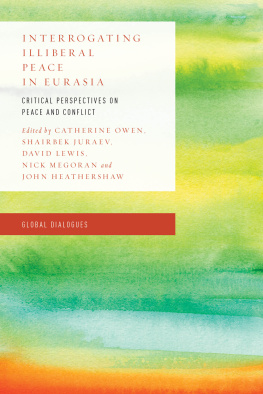

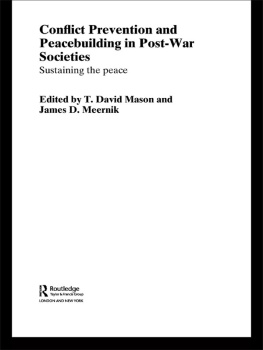
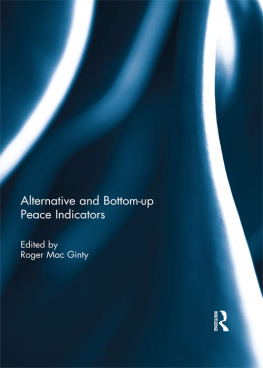
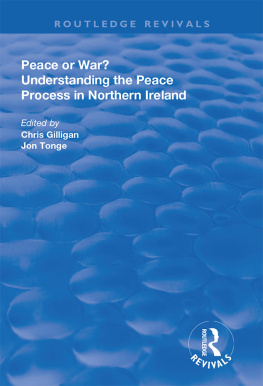
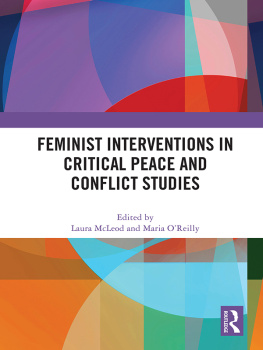
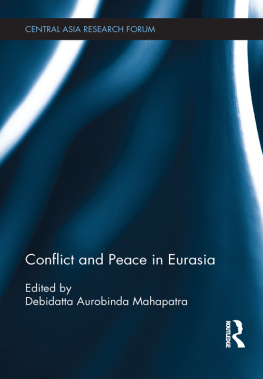
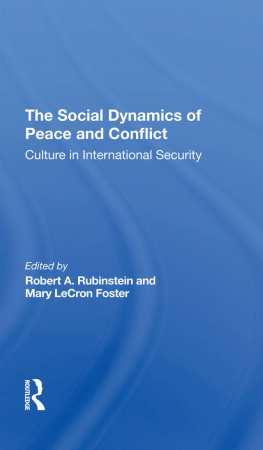
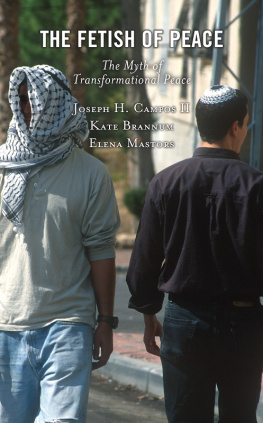
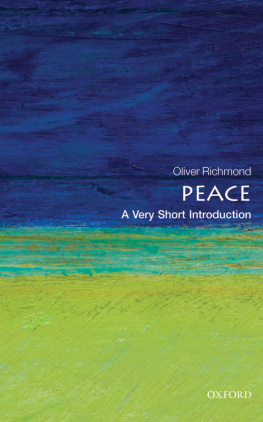
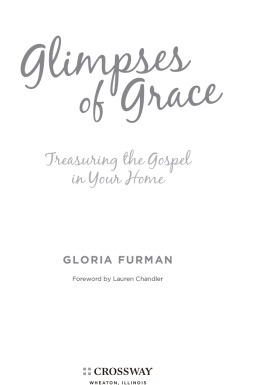
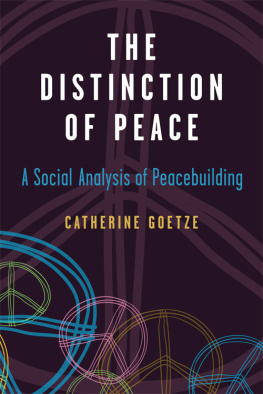
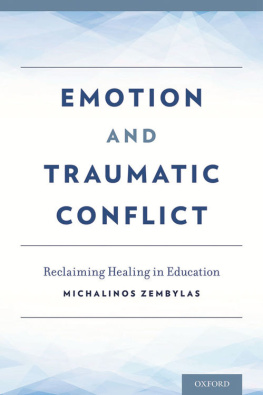

 The paper used in this publication meets the minimum requirements of American National Standard for Information SciencesPermanence of Paper for Printed Library Materials, ANSI/NISO Z39.481992.
The paper used in this publication meets the minimum requirements of American National Standard for Information SciencesPermanence of Paper for Printed Library Materials, ANSI/NISO Z39.481992.